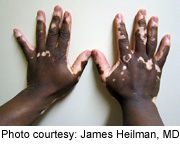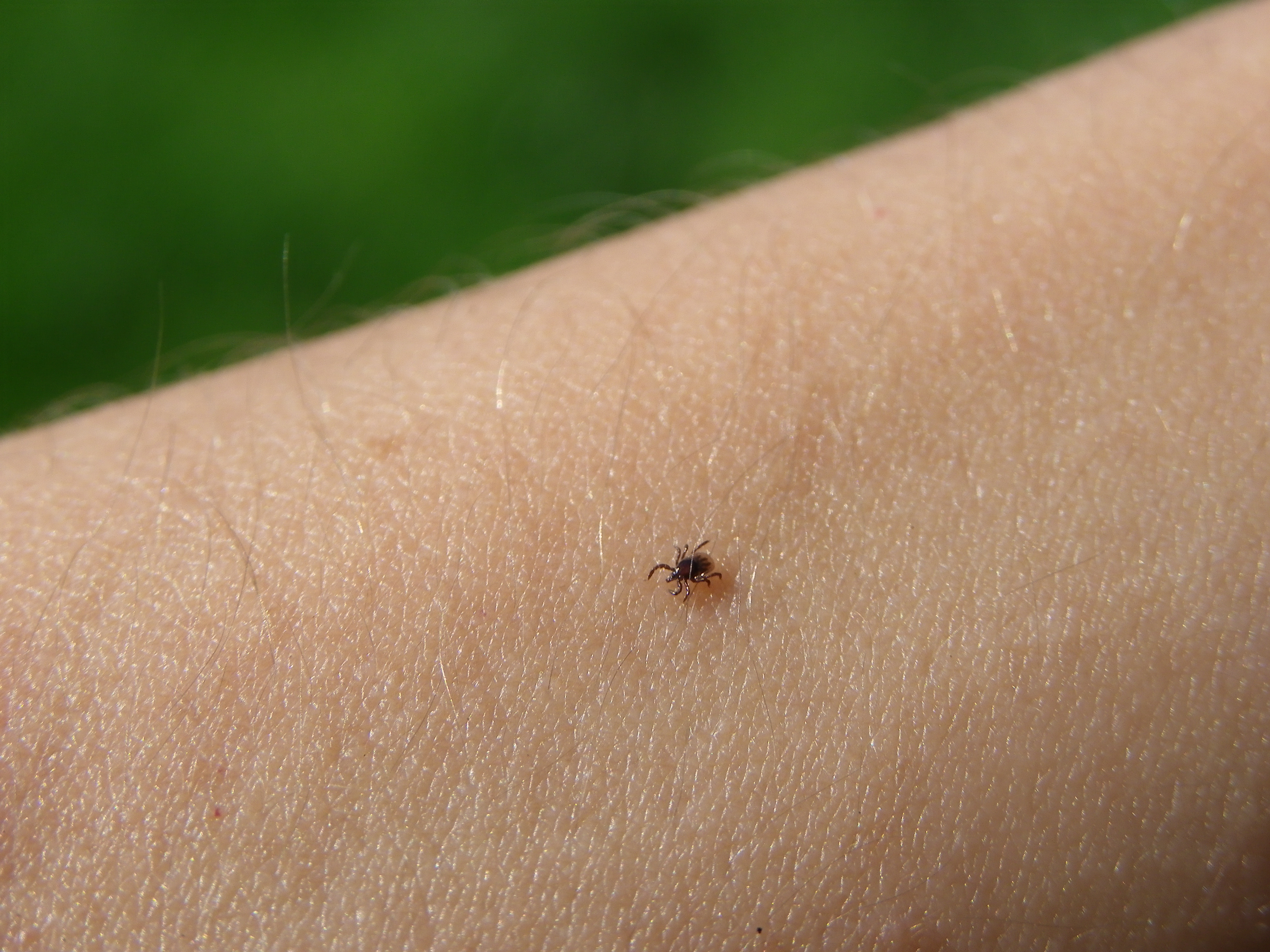
WEDNESDAY, Feb. 27 (HealthDay News) — A genetically modified protein could provide the first effective treatment for the skin condition vitiligo, a new study in mice suggests.
People with vitiligo have white patches on the face, hands and other parts of the body. Vitiligo is an autoimmune disorder in which the immune system becomes overactive and kills the pigment cells that give skin its color.
Researchers at the Loyola University Chicago Stritch School of Medicine developed a genetically modified protein that reversed vitiligo in mice and had similar effects on human skin tissue samples. Findings from animal studies do not always hold up in human trials, however.
A protein called HSP70i plays a major role in the autoimmune response that causes vitiligo. The researchers genetically modified an amino acid in the protein in order to create a mutant version of HSP70i. This version replaces normal HSP70i and reverses the autoimmune response that causes vitiligo, the study authors explained in a Loyola news release.
When the mutant HSP70i was given to mice with vitiligo, their salt-and-pepper fur turned black, giving them a normal appearance. The mutant protein had a similar effect on human skin samples, according to the study, published in the current issue of the journal Science Translational Medicine.
Researcher I. Caroline Le Poole, a professor in Loyola’s Oncology Institute, and colleagues are seeking approval and funding to conduct a clinical trial of the modified protein in humans.
About 1 million Americans have vitiligo, which affects about one in 200 people worldwide. There are no long-term effective treatments for the condition. Current options include steroid creams, light therapy and skin grafts, but none of them can prevent vitiligo from progressing.
More information
The U.S. National Institute of Arthritis and Musculoskeletal and Skin Diseases has more about vitiligo.

